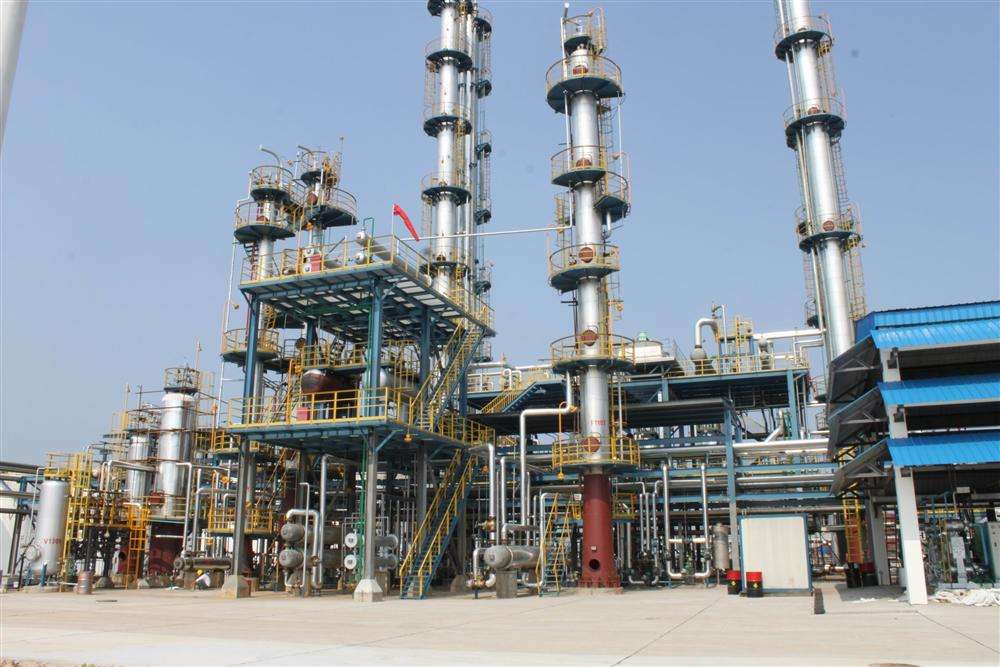Phenol Alkylation Plant: Pioneering Aromatic Chemistry and Industrial Advancement
Phenol, a vital aromatic compound with the molecular formula C6H5OH, serves as the linchpin of the Phenol Alkylation Plant. The alkylation process involves the introduction of alkyl groups (hydrocarbon chains) to the phenol molecule, resulting in the formation of alkylated phenols. This chemical modification enhances the functional properties of phenol, opening the door to a multitude of applications across industries.

Role and Operations of the Phenol Alkylation Plant
A Phenol Alkylation Plant is a highly specialized facility equipped with state-of-the-art technology and intricate engineering systems. Its core objective is to facilitate the alkylation process through a sequence of well-choreographed steps:
Alkylating Agent Introduction: The process begins with the introduction of an alkylating agent, which reacts with phenol in the presence of a suitable catalyst. Common alkylating agents include methanol, ethanol, and tert-butanol.
Reaction and Catalysis: The catalyst plays a crucial role in facilitating the alkylation reaction. It enhances the reaction rate, selectivity, and efficiency, allowing for the precise incorporation of alkyl groups onto the phenol molecule.
Separation and Purification: The reaction mixture undergoes separation and purification steps to isolate the desired alkylated phenol product from unreacted starting materials and byproducts. Techniques such as distillation, extraction, and chromatography are employed for this purpose.
Product Refinement: The isolated alkylated phenol product may undergo further refinement to meet specific industry requirements. This could involve additional purification steps or modifications to achieve desired properties.
Applications and Industrial Significance
The Phenol Alkylation Plant is a versatile facility with a broad spectrum of applications:
Pharmaceuticals: Alkylated phenols find utility in pharmaceutical synthesis, where they serve as building blocks for various drugs and medicinal compounds.
Agrochemicals: The plant contributes to the production of agrochemicals, including herbicides, fungicides, and insecticides.
Plastics and Polymers: Alkylated phenols are used as stabilizers and antioxidants in the production of plastics and polymers, enhancing their durability and performance.
Flavors and Fragrances: The aromatic nature of alkylated phenols makes them valuable components in the creation of flavors and fragrances for the food and cosmetic industries.
Chemical Intermediates: Alkylated phenols serve as intermediates in the synthesis of various chemicals, contributing to the creation of an array of products.
Advancements and Future Prospects
As technology and chemical engineering continue to advance, the Phenol Alkylation Plant is poised for further innovation and optimization. Advances in catalyst design, process automation, and sustainable practices may enhance the efficiency of alkylation processes while reducing energy consumption and waste generation.
Moreover, the adoption of green chemistry principles within the Phenol Alkylation Plant could yield more environmentally friendly processes, minimizing the use of hazardous reagents and generating fewer byproducts.
Conclusion
The Phenol Alkylation Plant stands as a testament to the marvels of chemical engineering and industrial innovation. Its role in transforming phenol into valuable alkylated derivatives demonstrates the profound impact of chemical modification on the properties and applications of aromatic compounds. As industries continue to seek efficient, sustainable, and versatile chemical processes, the Phenol Alkylation Plant remains a cornerstone of progress, shaping the future of aromatic chemistry and industrial advancement.

